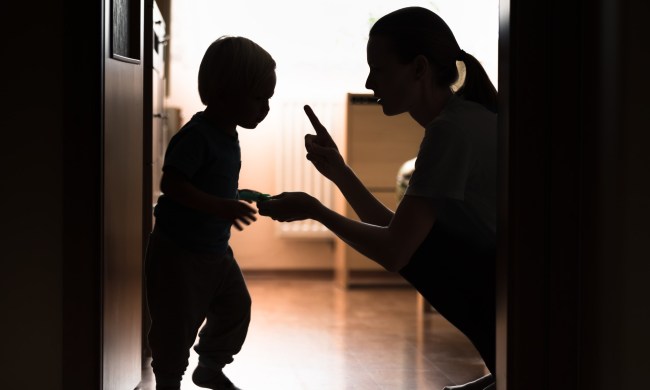They’re as unpleasant as they are inevitable. Nothing dispels domestic bliss and raises a parent’s blood pressure like power struggles with their children.
Power struggles come in many shapes and sizes and are a normal part of the parent-child dynamic. At their core, familial power struggles are simple to understand. A child wants to get his or her way, the parent refuses to relent, and the resulting impasse leads to all manner of conflict — from raised voices to stamping feet to disciplinary action.
The most common advice for this situation — stay cool! — is much easier to give than it is to follow. Yes, parents indeed need to remain calm and not take the bait of an all-out argument. Still, parents can do lots of practical things to gain and remain in control while finding a solution that doesn’t cause unnecessary frustration or tears.
Here are some tips and tactics that can help you navigate the next power struggle with your kids, be they big or small.
Don’t make matters worse
Always remember that you’re the grown-up in the situation. Sometimes arguments escalate and take on a life of their own, detracting from the core issue — cleaning up toys in the living room, for example, or curbing excessive screen time. This dynamic is pure quicksand for any productive conversation.

When an argument spirals out of control, it can become a test of wills, with the child (and maybe the parents) feeding off their emotions in the moment rather than holding a more measured discussion about the matter at hand.
Remember that a power struggle is just that—a struggle. Stay away from that dynamic and stay focused on the actual challenge by avoiding a tit-for-tat.
Address the problem together
Make your child an ally in the process. If they disagree with what you’re asking them to do or how you’re asking them to do it, don’t fall back on the “because I said so” mentality.
Even though you’re the parent in the equation, remember that you can’t actually control anyone else — only yourself.
That said, it’s important not to give away your authority. But you can retain your parental power while asking the child a very simple question: How would you solve this problem?
Inviting them to contribute shows you trust them while giving them the power and control over their environment that kids crave. This joint approach to problem – solving empowers them to make a difference both in their lives and the wider household. You might be surprised by how eager they become to help when their help is solicited, and the my-way-or-the-highway approach is abandoned.
Don’t threaten or beg
If you’ve ever tried begging or pleading with your child, you know how futile the effort can be. It essentially relinquishes your control of the situation.
Likewise, bellicose threats can scare them or pour gasoline on the proverbial fire. It is also possible that you can undermine yourself as a parent if you make threats that aren’t backed up with the appropriate disciplinary actions.

Be prepared to punish
There are proactive and effective ways of disciplining children. Consider punishment a last resort. Here are some punishment do’s and don’ts to keep in mind.
Don’t wait for an argument to crop up before you consider enforcement options. Also, keep in mind that every child and situation is different, so customize these reprimands based on your unique situation. Remember that the goal is not to “hurt” or “get back at” your child, but to get their attention and enforce the boundaries you’ve set for them and the household.
Disciplinary Do’s
- Give them choices (“you can play with the toy the right way, or we can put it away for the rest of the week”).
- Take away electronic devices, including phones or video games, for a set period of time.
- Take away toys (focus on toys that are important to them, but not ones they might need for sleep or to soothe themselves).
- Restrict TV time or access to a favorite show or streaming service. Again, establish a set period of time, rather than making the punishment open-ended.
- Establish a curfew or otherwise restrict leisure activities or time with friends
Disciplinary Don’ts
- Do not take away electronics they need for school.
- Do not withhold meals.
- Do not alter sleeping arrangements (e.g., making them sleep on the floor).
- Do not limit access to important school and extra-curricular activities.




